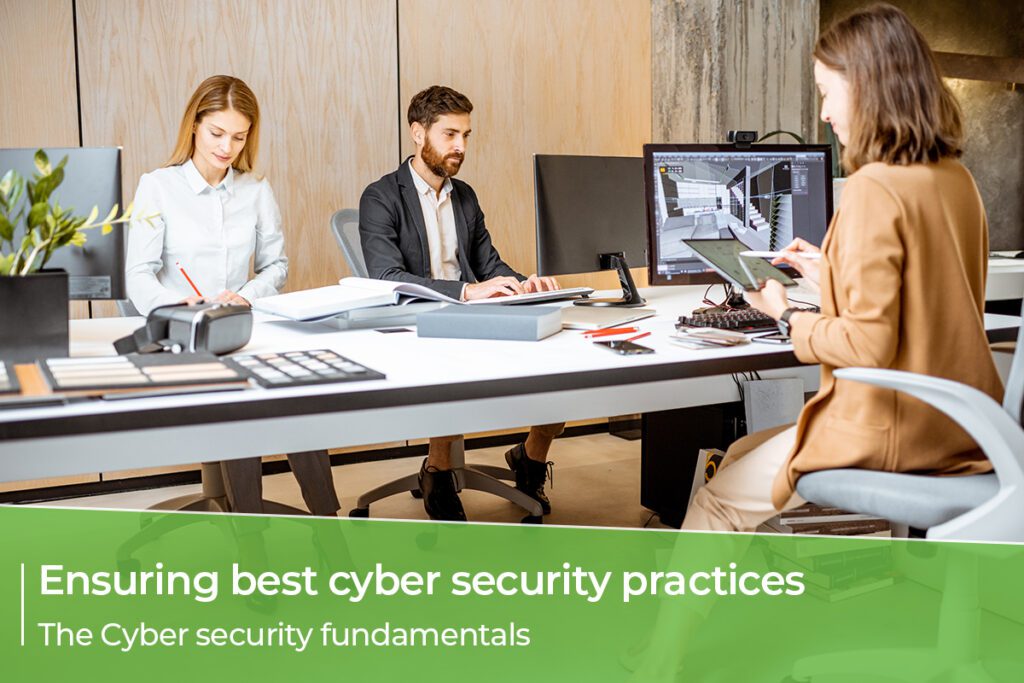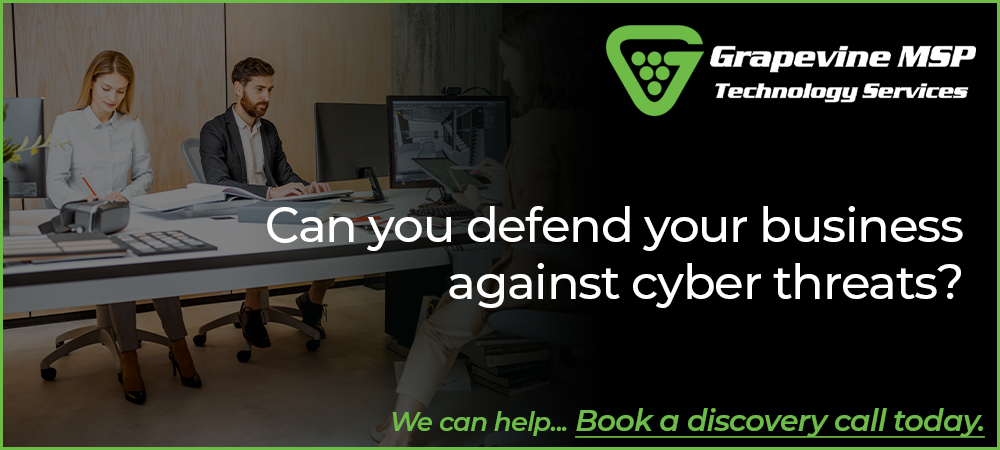In the previous article we explored cyber security and the importance of it being at the very forefront of your business concerns, and we also had a look at some of the methods used by cyber criminals to attack your systems.
In this article we will investigate some cyber security fundamentals that will equip and prepare you for any eventuality you are faced with.
The Cyber security fundamentals
Good data backup
Cyber attacks are more common now than they have ever been before. This has made it integral to have an effective backup strategy in place to ensure your IT systems and data are safeguarded – your business relies on them; without them your business won’t be able to function.
The 3-2-1 backup rule is the best way to achieve this. This ensures that there are three copies of your data at all times; two of them should be on separate storage media and one should be stored offsite for disaster recovery purposes. Having three copies of your data in different locations will give you peace of mind that you always have a way of continuing to work no matter the circumstances.
Cyber security is all about risk management and your Data backup is one of the best tools you have to help achieve it – having a way to carry on working even once the attack/ disaster has taken place is essential. Data backup will allow you to meet customer expectations despite any problems occurring.
Secure passwords
Having good passwords should be common practice in the modern world as we all use them every day. It is not good practice to use common number or letter sequences (like 1234 or ABCD) or words or phrases that mean something to you. Good passwords are random – the letters, numbers, and other characters should have no meaning to you or be in any sort of sequence. Make them difficult but not too difficult that you don’t remember them yourself.
Your team needs to follow some rules when creating their passwords in order to guarantee they are as secure as they possibly can be. Doing this will enable them to stand up against the cyber criminals trying to breach them.
- Use multi-factor authentication where it is available.
- If it is too easy to remember – then don’t use it. Avoid easily recalled sequential passwords, recurring numbers (such as 1234, 6789), as well as common words (dog, cat, etc).
- If possible, make sure your password is over 10 characters long and contains a combination of letters and numbers – when it comes to passwords the longer the better!
Use upper and lower case letters.
- Periodically change your password; sometimes accounts are hacked unbeknownst to the account holder.
Passwords are arguably the most important of all cyber security measures that you can implement. Passwords are the first line of defence that a cyber criminal will have to penetrate to gain access, but, unfortunately, users often overlook this security measure and make them as easy as possible to remember and input. You must safeguard your data – no matter how tedious it may be inputting a long password every time – you will be thankful when it’s not your system that becomes the victim of any breaches.
Manage permissions
It is very important to manage permissions to your system. If a cyber criminal does successfully breach your system this could result in data loss, theft or – if the cyber criminals are particularly clever – deliberate changes to your security settings which will present opportunities for better prepared attacks at a later date.
Anti-malware measures
You MUST have Anti-Malware software on all of your laptops and computers – that goes for the devices that you have at home too. A lot of operating systems come with a free version which is normally not too bad for home use, but under no circumstances will it be good enough for business use – replace this, immediately!
Data encryption
The cyber criminals’ intentions are to encrypt your data – as we explained earlier – but here comes the confusing part, you need to encrypt it before they do. Confused? That’s completely understandable. Encrypting your own data sounds counterproductive but it is different to it being encrypted by a third party. Data encryption works by scrambling the readable text of your files and documents so they can only be read by the person who holds the ‘key’. It is therefore essential to do this before the criminals do.
We hope that now you know some of the most popular methods of attack used by cyber criminals, and some of the best ways to prepare your systems to combat them, you can feel confident that your system and team are prepared for whatever cyber criminals can throw at them.
Your small business – secured
At Grapevine, our team of dedicated engineers can meet any technical challenge you may come across. We take our time in getting to know you, your business, employees, and your goals for the future so we can then find the best technological solution for you to guarantee constant security. Our years of experience leave us primed and ready with all the tools needed to ensure a top-quality service, now and into the future. Contact our team and let us start our journey together today.
Contact our team and let us start our journey together today.


